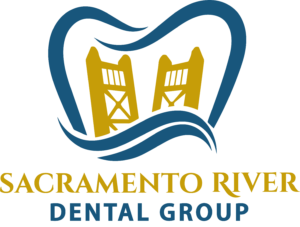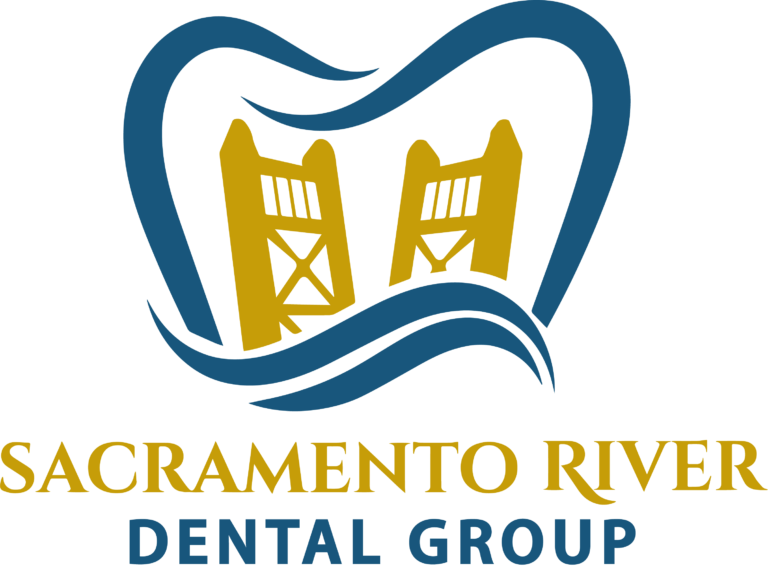Appraising a dental practice is a nuanced journey that involves gaining a deep understanding, offering insightful perspectives, and employing a thorough approach. Establishing a precise value is significant for those looking to buy and sell. Whether you’re exploring a potential sale, considering an acquisition, or seeking a valuable benchmark, there’s a wealth of information to explore and consider.
Appreciating the worth of a dental practice goes beyond assessing its tangible assets. It involves acknowledging the practice’s potential, its current success, and its distinctive qualities. By adopting the proper perspective, you can guarantee a fair and precise valuation. What insights should you gather to navigate the subtleties and complexities involved?
 Exploring the Fundamentals of Dental Practice Appraisal
Exploring the Fundamentals of Dental Practice Appraisal
Each dental practice has distinct qualities, making its valuation a personalized process. Elements like its location, equipment, and patient base carry substantial weight. Simultaneously, numerous other variables contribute to the overall valuation. From profitability to future growth prospects, every detail holds significance.
In valuation, two primary methods take the spotlight: the asset-based and earnings-based approaches. Understanding which method suits a specific practice can significantly influence the results. Exploring the critical distinctions between these approaches sheds light on their respective importance.
Understanding the Contrasts Between Asset and Earnings Approaches
Asset-based valuation primarily emphasizes tangible assets, encompassing equipment, real estate, and inventory. Though straightforward, this method may occasionally underestimate a practice’s true worth. It tends to overlook the value of intangible assets, such as reputation and patient loyalty, which are integral contributors to the overall value of a practice.
Conversely, an earnings-based valuation focuses on the practice’s income potential by considering current and projected earnings. This method provides a comprehensive perspective, encapsulating the true essence of the practice’s value. However, the choice of the most suitable approach often hinges on the practice’s specific circumstances, allowing for a positive and tailored valuation process.
The Crucial Role of a Comprehensive Financial Analysis
The financial well-being of a practice plays a crucial role in its valuation, providing valuable insights into its profitability, stability, and potential for growth. A comprehensive financial analysis delves into balance sheets, income statements, and cash flow reports, offering a meticulous examination that enhances our understanding of the practice’s value.
It’s not only the present financial status that matters, but historical data is equally crucial. Examining trends, patterns, and anomalies allows for informed projections benefiting buyers and sellers. Neglecting this in-depth analysis could result in valuations that do not accurately reflect the practice’s value, emphasizing the importance of a thorough and optimistic assessment.
The Influence of Market Conditions on Valuation
Practice valuation is notably impacted by market conditions, which reflect the ebb and flow of demand and supply in dental services. Economic shifts, local competition, and patient demographics contribute to this influence. Grasping these elements is instrumental in assessing a practice’s competitive advantage.
In addition, the ever-changing trends in the dental industry have the potential to alter market dynamics, influencing the attractiveness and value of a practice. Staying attuned to these shifts ensures that the valuation accurately mirrors real-world conditions, making it adaptable and responsive rather than static.
Elements to Take into Account in Dental Practice Valuation
The value of a dental practice is shaped by numerous nuanced factors, encompassing both tangible assets and intangible strengths, underscoring the importance of every aspect. Valuations can be significantly influenced by factors like patient loyalty, the condition of equipment, and location. Hence, adopting a comprehensive approach is imperative to ensure an accurate and positively nuanced assessment.
Customer Base and Allegiance
A robust and devoted patient base serves as the lifeblood of practice, ensuring a steady flow of revenue and elevating the practice’s attractiveness. The frequency of visits, the array of available treatments, and patient referrals convey a wealth of information. Grasping this metric offers valuable insights into the practice’s overall health and positive trajectory.
Beyond mere numbers, the essence lies in fostering strong relationships, ensuring patient satisfaction, and encouraging their loyalty. A dedicated patient base not only trims marketing expenses but guarantees a steady and reliable revenue flow. Considered an intangible asset, it contributes substantial value to the practice.
Location of the Practice and Ease of Reach
The location has a profound impact on how a practice is valued. A prime location not only attracts more patients but also provides enhanced visibility. Proximity to residential areas, easy accessibility, and convenient parking facilities are critical. A favorable location often results in a higher influx of patients.
Simultaneously, it goes beyond just foot traffic. The surrounding area’s demographics, the competition level, and the growth potential contribute to the equation. Consider, for instance, that a practice in an upscale urban area may experience different valuation dynamics than one in a rural setting. Each location presents its unique advantages and challenges.
Equipment Age, Quality, and Technological Progression
Up-to-date, top-notch equipment has the power to enhance the value of a practice. It improves service quality, minimizes downtime, and boosts patient satisfaction. Considerations such as the equipment’s age, maintenance, and alignment with the current dental landscape all positively impact the practice.
Moreover, the rapid technological evolution in dentistry presents practice opportunities. Those who stay current and invest in the latest technology gain a competitive edge, providing enhanced services and positioning themselves as industry leaders. This proactive approach not only improves their offerings but also attracts a more significant number of patients positively.
Practice Image and Brand Reputation
A remarkable reputation is a priceless asset for a practice. Word-of-mouth referrals, positive online reviews, and active community engagement collectively shape the practice’s image. A robust brand presence can enhance its valuation, symbolizing trustworthiness, high-quality service, and overall patient satisfaction.
Cultivating and upholding this reputation involves dedication. Essential components include sustained patient engagement, active community participation, and unwavering service excellence. A practice that has effectively established its brand will inevitably hold more value than one that hasn’t.
Income Streams and Financial Viability
A varied revenue stream contributes to a practice’s financial health stability. Providing a diverse range of services widens the reach to a broader patient base, ensuring a consistent income flow, even if there’s a decline in demand for one particular service. Periodically examining revenue sources can provide valuable insights into future potential.
Moreover, achieving profitability goes beyond generating high revenues. Critical considerations include efficient operational practices, wise expense management, and optimal resource utilization. A practice that skillfully balances income and expenses demonstrates financial acumen, positively influencing its valuation. This approach highlights the importance of sound financial management for a practice’s overall success.
Employee Competence and Reliability
A committed and skilled team is essential for a practice’s success. Dentists, hygienists, administrative staff, and other team members all play crucial roles in contributing to the practice’s excellence. Their expertise, dedication, and continuity can significantly elevate the value of a practice. A stable team indicates lower turnover and ensures consistent service quality.
Moreover, ongoing staff training and development are crucial contributors. They ensure that the practice remains abreast of the latest advancements in dental care. A well-trained and cohesive team is well-equipped to provide superior patient experiences, further enhancing the overall value of the practice.
Outstanding Liabilities and Debts
Beyond the positive aspects, it’s essential to consider potential liabilities and debts that could impact a practice’s value. Outstanding loans, ongoing litigations, or unresolved disputes may raise concerns and act as red flags. Addressing these issues is crucial for the financial bottom line and maintaining confidence in the practice’s overall management.
Nevertheless, debts that are well-managed and taken for purposes like expansion or equipment upgrades can be seen in a positive light. It’s crucial to comprehend the nature and purpose behind these liabilities. Transparent financial disclosures and a well-defined plan for resolving debts can help alleviate any negative impact on the practice’s valuation.
Potential for Future Expansion and Scalability
Looking beyond the current state and considering potential future growth becomes crucial. Can the practice diversify its services? Is there scope for physical expansion? What is the growth trajectory of the surrounding community? Exploring these questions can provide valuable insights into the promising prospects of the practice.
Scalability holds significant importance as well. A practice that can manage growth efficiently without compromising service quality is highly desirable. It showcases foresight, planning, and adaptability—qualities that potential investors or buyers find attractive.
Typical Mistakes in Evaluating Dental Practices
Valuation is a nuanced process that requires careful consideration. Mistakes can substantially impact the outcomes, with overestimations potentially leading to missed sale opportunities and underestimations causing financial losses. Being mindful of common pitfalls is the initial step toward overcoming such challenges.
Failure to Consider Intangible Assets
While it’s simpler to quantify tangible assets, the value of intangibles should not be underestimated. Brand reputation, patient loyalty, and proprietary processes contribute significantly to the overall value. Overlooking these aspects may lead to a significant undervaluation. Acknowledging and factoring in intangibles is essential for a comprehensive and accurate valuation.
Conversely, assigning excessive value to intangibles can pose challenges. Striking a balance is essential. Leveraging industry benchmarks and seeking professional advice can guarantee that intangibles are valued appropriately.
Failing to Account for Market Saturation
Market dynamics are crucial in the valuation process. Neglecting market saturation can result in overestimation. The growth potential might be limited if the local area is already densely populated with dental practices. Awareness of this fact can help set realistic expectations for the practice’s value.
Conversely, discovering untapped markets or niches within a saturated market can unveil hidden value. It involves comprehending the practice’s position within the broader market context and adjusting the valuation accordingly. This positive approach emphasizes the potential for identifying unique opportunities even in a competitive landscape.
Misinterpreting the Effect of Practice Liabilities
Liabilities and debts have a dual nature—they may impact valuation and convey a narrative. Misinterpreting or underestimating the impact of these financial obligations can result in errors. It’s crucial to recognize that it’s not just about the amount but understanding the reasons behind them.
Consider, for example, a loan taken for a recent technology upgrade, which signifies forward-thinking. On the other hand, recurring debts due to operational inefficiencies might raise concerns. Distinguishing between these nuances can contribute to a more precise and insightful valuation.
 The Crucial Role of Employing an Expert for Practice Valuation
The Crucial Role of Employing an Expert for Practice Valuation
Valuation is a harmonious blend of art and science. Even with established methods, the distinctiveness of each practice calls for a personalized approach. This is where professionals play a pivotal role, bringing their expertise, industry insights, and an unbiased perspective to the process.
Skilled valuation experts possess the ability to recognize and measure intangibles. They stay current with industry benchmarks and the latest valuation methodologies. Their insights serve as a valuable guide, helping to avoid common pitfalls and ensuring a fair and thorough valuation process.
Moreover, professionals can serve as mediators during negotiations. They can validate the valuation, instilling confidence in both buyers and sellers. Their involvement contributes to a streamlined valuation process, ensuring transparency and fairness for all parties involved.
Incorporating Competitive Analysis into Valuation
Grasping the competitive landscape is essential. It provides valuable insights into the practice’s strengths and areas for enhancement. Analyzing the competition illuminates market positioning, service offerings, and potential opportunities.
Examining competitors can unveil untapped opportunities within the market. These openings represent potential areas for growth or diversification. Furthermore, gaining insight into competitors’ strengths can inform strategic decisions, positioning the practice for success.
On the other hand, identifying areas where competitors may have weaknesses can provide a strategic advantage. It’s all about using these insights to boost the value of the practice. Incorporating competitive analysis into the valuation process can lead to a more practical and actionable outcome.
Considering Future Trends in the Dental Sector in the Valuation Process
The dental landscape is ever-changing, influenced by new technologies, treatments, and evolving patient expectations. Remaining aware and aligned with these trends is crucial for ensuring the resilience and future success of a practice’s valuation.
Embracing upcoming trends allows for realistic growth projections. Grasping these shifts can strategically position the practice for future success in areas like teledentistry, AI-driven diagnostics, or green dentistry. It’s about taking a proactive approach, ensuring the practice stays relevant and maintains its value.
Contact Sacramento River Dental Group Today for Support in Evaluating a Dental Practice
Ultimately, assessing the value of a dental practice is a thorough undertaking. It demands depth, comprehension, and a discerning eye for detail. An accurate valuation is vital whether you are contemplating a sale, acquisition, or seeking a comprehensive assessment for any purpose.
The valuation process may seem intricate, but you don’t have to go through it alone. Sacramento River Dental Group is here to support you. With our industry insights, expertise, and personalized approach, we guarantee that your practice’s valuation is fair, thorough, and reflective of its genuine value. Contact us today for expert guidance.
Frequently Asked Questions:
Q: Why is it essential to comprehend the financial well-being of a dental practice when evaluating its value?
A: Scrutinizing financial statements allows us to assess profitability, stability, and growth potential, crucial factors for achieving an accurate valuation of a dental practice.
Q: What role does the location play in the valuation of a dental practice?
A: Location significantly contributes to practice valuation by affecting patient influx, visibility, and accessibility. It stands out as a crucial factor to take into account.
Q: How do the age and technological advancements of equipment impact assessing a dental practice’s value?
A: The condition and quality of equipment and technological updates enhance a practice’s value by improving service quality and patient satisfaction.
Q: Does a robust patient base and patient loyalty impact the valuation of a dental practice?
A: Absolutely; a loyal patient base adds significant value to a practice, minimizing marketing costs and ensuring a steady and reliable revenue stream.
Q: What role does the reputation and branding of a dental practice play in its valuation?
A: A stellar reputation and robust branding contribute to the enhanced value of a practice, representing trustworthiness, high service quality, and overall patient satisfaction.
Q: Why is it beneficial to consider the diversity of revenue streams in valuing a dental practice?
A: Diversified revenue streams play a vital role in stabilizing a practice’s financial health, ensuring a steady income flow even if demand for one service experiences a decline.
Q: How does the expertise and stability of the staff impact the valuation of a dental practice?
A: A committed and skilled team is instrumental in the success of a practice, boosting its value through lower turnover and the maintenance of consistent service quality.
Q: How does a dental lawyer contribute to the valuation process of a dental practice?
A: A dental lawyer brings legal expertise to the forefront and plays a pivotal role in mediating negotiations, ensuring a valuation process that is transparent and fair.
Q: Why is it valuable to consider market conditions and competition when evaluating the worth of a dental practice?
A: Market conditions, encompassing factors like demand, supply, and competition, shape the value of a practice by illustrating its competitive edge within the market.
Q: How do future trends in the dental industry contribute to the valuation of a dental practice?
A: Integrating future trends into the valuation process aids in establishing practical growth projections and positions the practice for success in an ever-evolving industry.


 Exploring the Fundamentals of Dental Practice Appraisal
Exploring the Fundamentals of Dental Practice Appraisal The Crucial Role of Employing an Expert for Practice Valuation
The Crucial Role of Employing an Expert for Practice Valuation